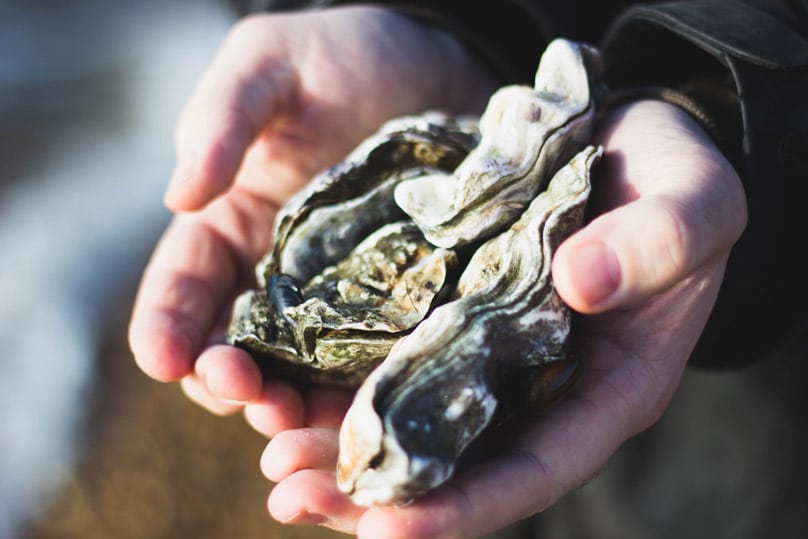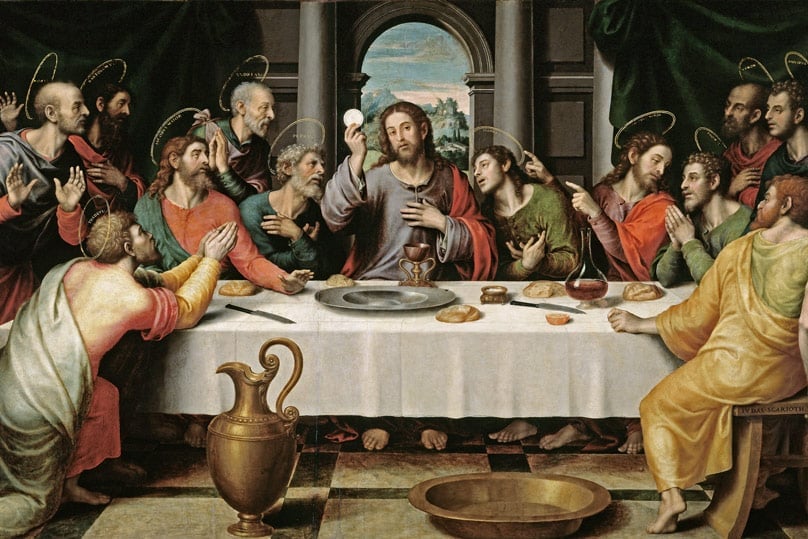
Our three parables this morning (Mt 13:44-52) compare the joy of finding the kingdom of heaven with the excitement people in Jesus’ world experienced on finding natural resources (like gold in a field), human inventions (like pearls set and retailed by merchants), or spiritual goods (like the “good fish’’ sorted from the bad ones by the angels). In a more modern parlance, Jesus might have compared entering His kingdom with discovering oil or gas in a field, or designing a new computer app called Google, or chancing upon a winning lotto ticket. But there’s more to these stories than just the luck of striking it rich …
For one thing, whatever part luck or (better) providence plays in our stumbling upon what we treasure in life, there is some human effort, discernment or choice involved in all three of Jesus’ stories this morning. Of course, for some, as Pope St Gregory the Great pointed out, faith, wisdom, vocation only come after a long, deliberate, often difficult search, as for the man searching for gold (or a world-changing computer app); while for others, faith or vocation seem to strike suddenly, even when least expected, as for the man who hauls in fish of all kinds (or wins the lotto). But whether grace is sudden or more gradual in its operation, we must play our part, having our metal detector switched on, our net in the water, our eyes open for pearls.
Secondly, as the third-century Church Father, Origen, pointed out, the pearl of great price is not prized just for its resale value, but also and above all because it is so beautiful. Finding God and His kingdom, Jesus is suggesting, is not just worth more than anything else we treasure, it is also more beautiful, more wonderful, more magnificent than anything we have ever known.
Thirdly, our parables suggest that seeking the gold nugget, the pearl of great price, the good fish, takes not just open eyes and an appreciative heart, but also time. Our fellows in the parables search, perhaps for years, and respond for years to come; their horizon, Jesus tells us, is “the end of time, when the angels will appear and separate the wicked from the just”; they bring their household “both new and old”.

As Christians, we are uniquely connected to time. We draw upon events two millennia and more ago, as the foundations of our faith and morals, of what we truly treasure; we aspire to a future full of promise, to Christ’s second coming, when wheat and tares, good fish and bad, will finally be distinguished and rewarded accordingly; but we live in the present, making Christ’s past sacrifice for our world and His future restoration of that world still present and already present here and now.
But how can we stretch back into the distant past, and forward into the unknown future, and yet keep our feet firmly on the ground of today? Above all through the Mass.
The Eucharist is our most intimate experience of that eternal now, as Jesus’ Last Supper with the Twelve and His future Supper of the Lamb in Heaven are united on our altar and experienced even now.
At Holy Communion we are transported to Bishop Marcuzzo’s Holy Land two thousand years ago, and forward into the Promised Land many years into the future, more truly, more wonderfully, than any sci-fi time-traveller. And through living Eucharistic lives we unite those memories and dreams, Calvary past and future Heaven, all in the present: the treasure-hunt and treasure-finding are for the here and now.
For the Christian God is not just a god who did some big things for us in the old days; not just the god who will do some big things with us someday; He is God doing great things for us and with us and in us, right now and in every moment.
He is the God whom we glorify “as it was in the beginning, is now, and ever shall be”. As the 17th Century French Jesuit Jean-Pierre de Caussade wrote, “God speaks to every individual through what happens to them moment by moment… If we have abandoned ourselves to God, there is only one rule for us: the duty of the present moment.”
Speaking of Jesuits and time, Pope Francis is very fond of saying “time is greater than space”. He quotes this aphorism in all four of his encyclicals and exhortations.
There has been quite some discussion about what precisely he means. But one clear message has been that we must be patient. It takes time to strike gold, to find the pearl of great price, to haul in the right fish. It takes time to search for the truth, to build trust, to co-operate in making God’s kingdom come. Political-bureaucratic planning and self-assertion alone will never bring us to that ”fullness’’. We might control the space around us for a while but will not always get what we want, when we want it. The best things happen in God’s good time and in the mean time we must persevere, living in the now, working slowly but surely, “without anxiety, but with clear convictions and tenacity”, leaving room for the Holy Spirit.
The pearl of great price that is the kingdom of heaven is worth the wait, for it is so beautiful.
“No-one knows the day or the hour” when the kingdom of God will come, Christ reminds us (Mt 24:36; 25:13), yet the kingdom is already among us and within us (Lk 17:20-21) because, as Jesus promised, “I am with you always” (Mt 28:20).
This is the edited text of the homily by Archbishop Anthony Fisher OP for the Mass for 17th Sunday in Ordinary Time, Year A, at St Mary’s Cathedral, Sydney, on July 30, 2017.
